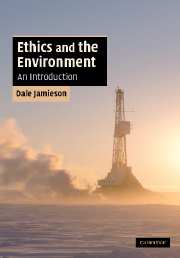3 - Meta-ethics
Published online by Cambridge University Press: 05 June 2012
Summary
The structure of the field
Ethical theory is conventionally divided into two major fields, meta-ethics and normative ethics. Meta-ethics concerns the meaning and status of moral language. Normative ethics is divided between moral theory and applied or practical ethics. Moral theory is concerned with what sorts of things are good, which acts are right, and what the relations are between the right and the good. Practical ethics is concerned with the evaluation of particular things as good and bad, and of various acts, practices, or institutions as right or wrong.
The distinctions between these fields can be illuminated by an example. Consider the sentence
(1) It is wrong to kill animals for food.
If we ask whether this sentence asserts a claim or only expresses an attitude, we are asking a meta-ethical question. If we wonder what sorts of theoretical considerations might give us reason to accept or reject such a sentence, we are concerned with moral theory. If we want to know whether the practice of killing animals for food is right or wrong, then we are concerned with a question in practical ethics.
While this account is not bad as a first approximation, there are many complications.
We might wonder how we know what counts as moral language. The occurrence of words such as ‘right’, ‘wrong’, ‘good’, ‘bad’, ‘cruel’, ‘kind’, ‘arrogant’, ‘generous’, ‘liar’, ‘crook’, ‘hero’, ‘coward’ are often tell-tale signs of moral language.
- Type
- Chapter
- Information
- Ethics and the EnvironmentAn Introduction, pp. 46 - 75Publisher: Cambridge University PressPrint publication year: 2008



